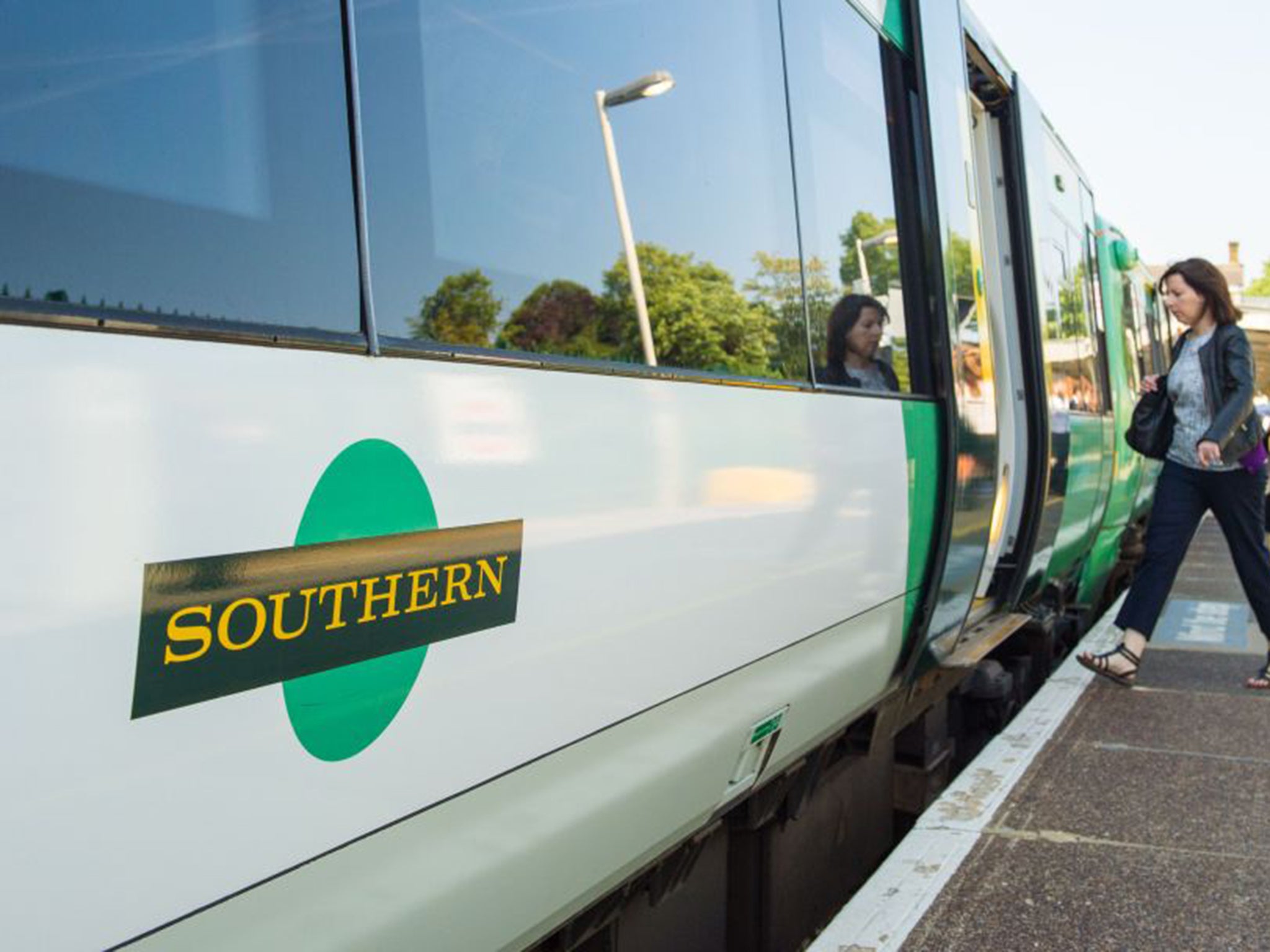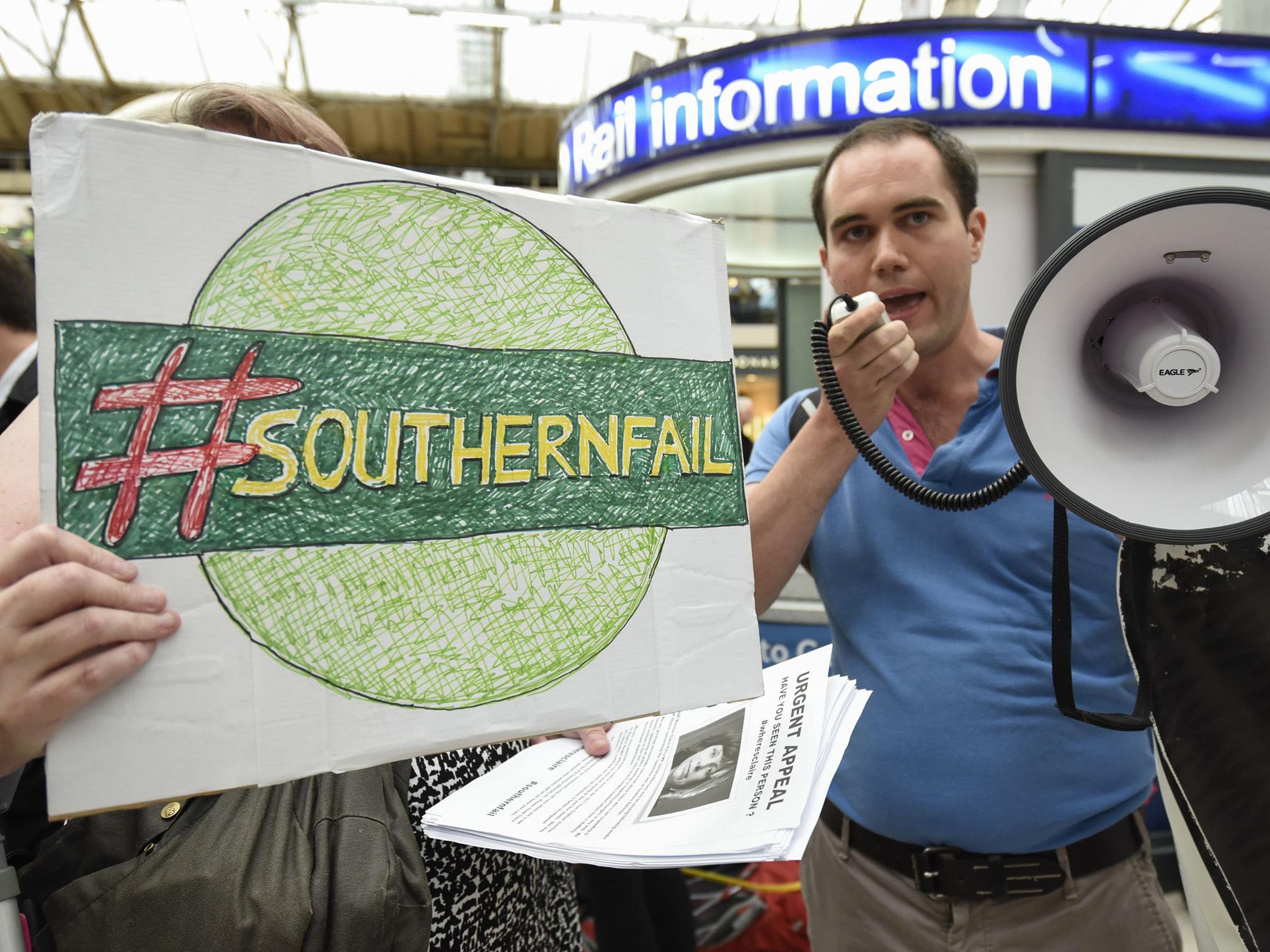Southern Rail strike: Hundreds of thousands of passengers face chaos due to longest industrial action in 50 years
The five-day strike is thought to be the longest since 1968

Your support helps us to tell the story
From reproductive rights to climate change to Big Tech, The Independent is on the ground when the story is developing. Whether it's investigating the financials of Elon Musk's pro-Trump PAC or producing our latest documentary, 'The A Word', which shines a light on the American women fighting for reproductive rights, we know how important it is to parse out the facts from the messaging.
At such a critical moment in US history, we need reporters on the ground. Your donation allows us to keep sending journalists to speak to both sides of the story.
The Independent is trusted by Americans across the entire political spectrum. And unlike many other quality news outlets, we choose not to lock Americans out of our reporting and analysis with paywalls. We believe quality journalism should be available to everyone, paid for by those who can afford it.
Your support makes all the difference.Commuters are facing a week of travel chaos as Southern Rail workers hold a five-day strike – thought to be the longest industrial action from transport unions in 50 years – over staff role changes.
Hundreds of thousands of passengers who use the Southern network, which includes London Victoria and Brighton trains, will have to cope with a 40 per cent reduced timetable in the latest set of disruptions to the service.
The week-long strike is believed to be the longest of its kind in half a century. The last that exceeded it was a 12-day walkout in 1968 by the National Union of Railwaymen over demands for a 9 per cent pay increase for all members.
This strike is only the latest pandemonium faced by passengers on the Southern network. Commuters have already protested about delayed, cancelled and overcrowded trains for some months as the network's owner, Govia Thameslink (GTR), negotiates with a major transport union.
But now talks have broken down with the Rail, Maritime and Transport Union (RMT) over long-standing proposals to change the role of onboard conductors so they no longer close the doors but have a "more customer service-based job". Drivers will shut the doors using new technology instead.
Last month GTR blamed a 15 per cent-reduced timetable, which is equivalent to 341 fewer trains, on "staff sickness". The company has called the rise in staff sickness unofficial strike action, which would be illegal. The union denies this. The The leap to a 40 per cent-reduced timetable is set to be a major blow for commuters on affected routes.
Speaking to The Independent, an RMT spokesperson said GTR was blaming its staff for its own poor planning. "They haven't recruited enough drivers and guards. The problem of delays has been going on way before industrial action, when new rosters were brought in," said the spokesperson last month.
"They've told the public that this is down to the staff, and not down to their handling of the situation. Our staff are getting spat on and verbally abused by customers as a result."
Now, customers travelling from Sussex look set to have no service this week at all.

Spokespeople for GTR have said no guards will lose their jobs or salary, and the change of role will mean the company can be "more flexible in how we use them".
Meanwhile, the Department for Transport has called the strikes "wholly injustified."
Rail minister Paul Maynard said: “This strike action from the RMT will do nothing other than cause yet more disruption and daily misery for passengers. It is deeply disappointing that the union bosses continue to overlook the impact they are having on the travelling public, and I strongly condemn this proposed action.
"There have been many issues with Southern Rail in recent months – but a strike like this helps no one.”
"We don't believe anything they say," the RMT spokesperson told The Independent. They added they knew there would be no forced redundancies.
In September last year, Southern had the worst punctuality record of all train operators in the country and recent figures show it remains poor compared to other providers. GTR acquired it in July last year and has said ongoing delays and difficulties have been worsened by construction at London Bridge.
Join our commenting forum
Join thought-provoking conversations, follow other Independent readers and see their replies
Comments